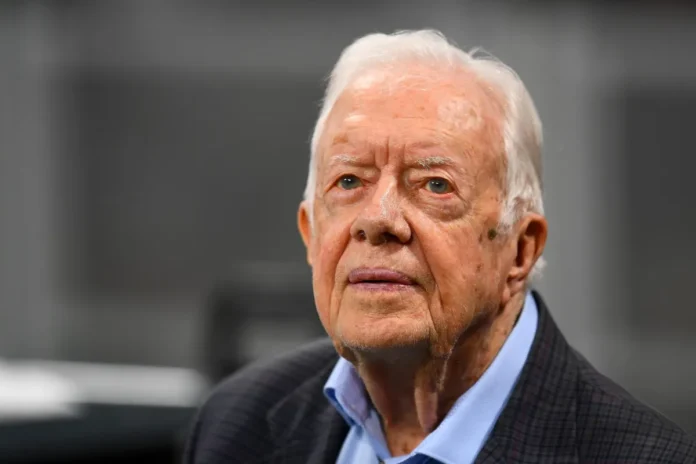James Earl Carter, Jr., the longest-living former US President, passed away at the age of 100 on Sunday at his home in Plains, Georgia, according to The Washington Post, citing his son James E. Carter III.
Carter’s son confirmed the news but did not disclose an immediate cause of death. Earlier, in February 2023, the Carter Center announced that the former president had chosen to enter hospice care at home following a series of hospital stays. Carter had been battling an aggressive form of melanoma, which had metastasized to his liver and brain in recent years.
The Washington Post reported that Carter was last seen in public on October 1, celebrating his 100th birthday with family and friends during a flyover event outside his home.
A Life of Service and Achievements
Jimmy Carter’s journey was remarkable, evolving from a small-town peanut farmer to a global statesman. He served as a US Navy veteran and was the governor of Georgia from 1971 to 1975 before becoming the 39th President of the United States.
Carter holds the distinction of being the first president from the Deep South since 1837 and the only Democrat to serve as president between Lyndon B. Johnson and Bill Clinton.
Legacy as a Peacemaker
Carter’s presidency is most notably marked by the signing of the Camp David Accords, a landmark agreement that led to Israel’s withdrawal from occupied territories and a lasting peace treaty with Egypt. His efforts earned him the Nobel Peace Prize for decades of dedication to peaceful conflict resolution, democracy, and human rights.
The Washington Post highlighted Carter’s significant contributions, including pushing through the Panama Canal treaties, which transferred control of the strategic waterway to Panama, strengthening ties with Latin America.
He also built upon the diplomatic opening initiated by President Richard Nixon, granting full recognition to China. Carter made human rights a cornerstone of US foreign policy, emphasizing democracy and social progress on the global stage.
Jimmy Carter’s enduring legacy reflects his commitment to fostering peace, equity, and international collaboration, leaving a lasting imprint on American and global history.


